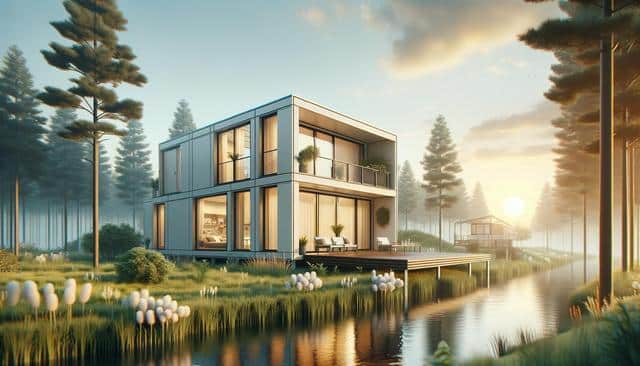Understanding Modular Homes
Modular homes have become increasingly popular as they offer a unique blend of efficiency and versatility in home design. Unlike traditional homes, modular homes are constructed off-site in a factory setting, which allows for precision and control in the building process. The major components, or modules, are then transported and assembled on the homeowner’s property. This method not only reduces construction time but also minimizes waste, making it an environmentally friendly choice. Additionally, modular homes adhere to the same building codes and standards as conventional homes, ensuring quality and safety.
Exploring Room Configurations
One of the most appealing aspects of modular homes is the adaptability in room configurations. Whether you are looking for a cozy two-bedroom layout or a spacious five-bedroom design, modular homes can be tailored to meet your specific needs. Homeowners can choose from a variety of floor plans or work with designers to create a custom layout. This flexibility allows for efficient use of space, ensuring that every square foot is optimized for comfort and functionality. Popular options include open-plan living areas, dedicated office spaces, and customizable kitchen and bathroom designs.
Advantages of Modular Living
Modular homes offer numerous advantages that make them an attractive option for modern living. Some of the key benefits include:
- Cost Efficiency: Modular construction often incurs lower costs compared to traditional building methods due to reduced labor and material expenses.
- Time Savings: With components pre-fabricated and delivered ready for assembly, the construction timeline is significantly reduced.
- Quality Control: Factory-controlled environments ensure superior quality and craftsmanship, reducing the likelihood of defects.
- Sustainable Practices: Modular homes typically use sustainable materials and construction techniques, contributing to a smaller environmental footprint.
These benefits make modular homes a practical choice for those seeking a reliable and eco-friendly housing solution.
Customization and Design Options
The design possibilities with modular homes are virtually limitless, allowing homeowners to create spaces that reflect their personal taste and lifestyle. From exterior finishes to interior fixtures, every aspect of the home can be customized. Options include:
- Exterior Cladding: Choose from materials such as wood, brick, or vinyl siding to achieve the desired aesthetic.
- Interior Finishes: Select from a variety of flooring, cabinetry, and countertop options to create a cohesive interior design.
- Energy Efficiency: Incorporate energy-efficient windows, insulation, and HVAC systems to enhance comfort and reduce utility costs.
These customizable elements enable homeowners to design a modular home that not only meets their functional needs but also reflects their style preferences.
Conclusion
As you consider the advantages and options associated with modular homes, it becomes clear that they offer a practical and adaptable solution for modern living. With their cost efficiency, speed of construction, and endless customization possibilities, modular homes provide an excellent alternative to traditional housing. Whether you’re seeking a compact retreat or a spacious family residence, modular homes can be tailored to accommodate your unique lifestyle needs while maintaining exceptional quality and sustainability. Embrace the future of homebuilding with modular homes and experience streamlined living like never before.
